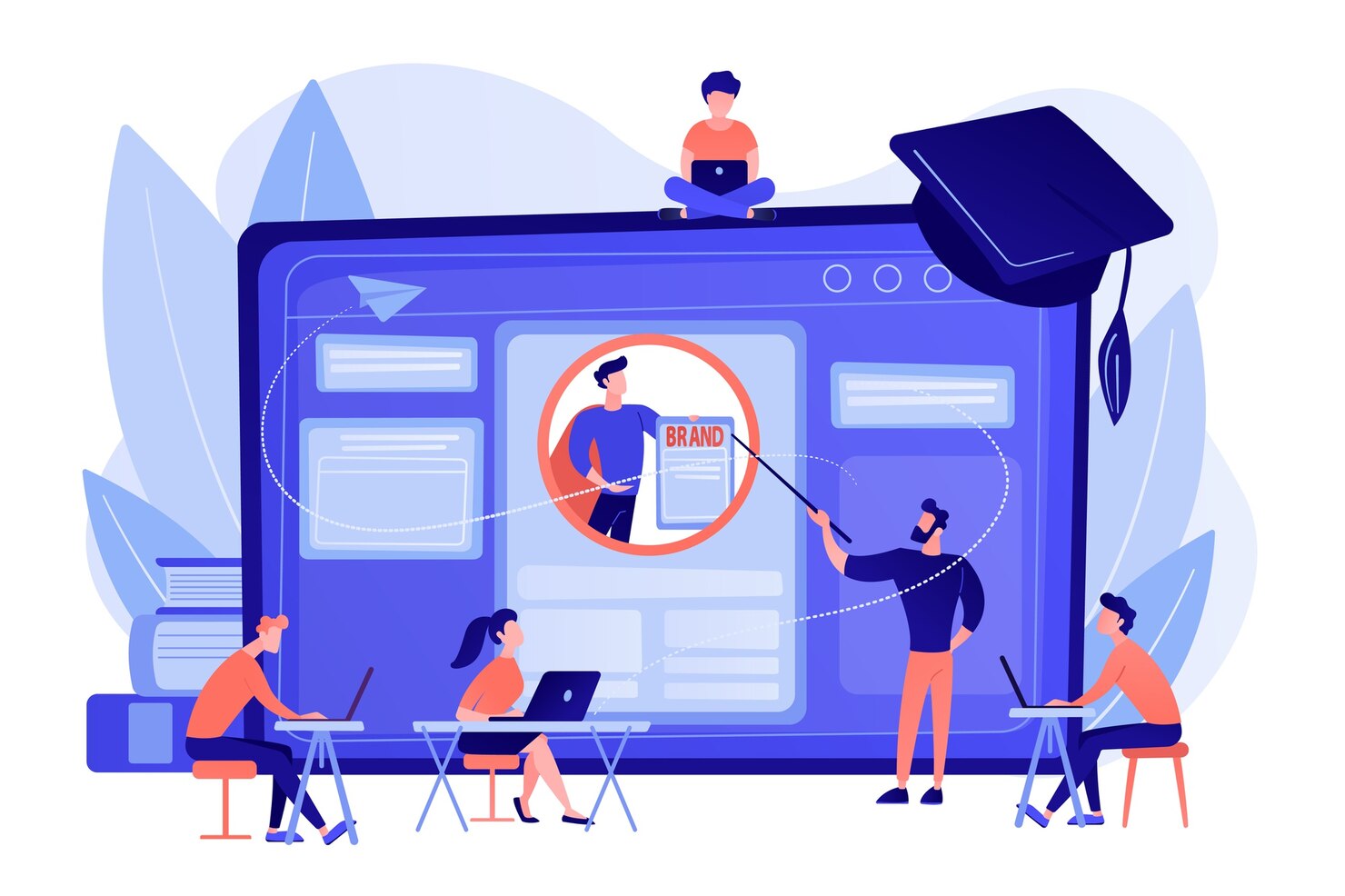In today’s rapidly evolving digital landscape, organizations across various sectors are recognizing the critical importance of effective learning and development programs. As traditional training methods become increasingly outdated, many businesses are turning to Learning Management Systems (LMS) to streamline their educational initiatives and enhance employee skills. While off-the-shelf LMS solutions are readily available, custom LMS development services offer a more tailored approach that can significantly boost an organization’s training efficacy and overall productivity.
Understanding Custom LMS Development
Custom LMS development involves creating a bespoke learning management system that is specifically designed to meet an organization’s unique needs, goals, and challenges. Unlike pre-packaged LMS solutions, custom-built platforms offer greater flexibility, scalability, and integration capabilities, allowing businesses to create a learning environment that aligns perfectly with their corporate culture and objectives.
Key Benefits of Custom LMS Development
- Tailored User Experience: A custom LMS can be designed with a user interface that reflects an organization’s branding and internal systems, creating a seamless and familiar learning environment for employees. This tailored approach can significantly improve user adoption rates and engagement levels.
- Specific Feature Set: With custom development, organizations can incorporate only the features they need, avoiding the bloat and complexity often associated with off-the-shelf solutions. This focused approach ensures that the LMS remains user-friendly and efficient.
- Scalability: As an organization grows and evolves, a custom LMS can be easily scaled and adapted to accommodate changing needs, new departments, or expanding user bases.
- Integration with Existing Systems: Custom LMS solutions can be seamlessly integrated with other corporate systems such as Human Resources Management Systems (HRMS), Customer Relationship Management (CRM) tools, or Enterprise Resource Planning (ERP) software, enabling smoother data flow and more comprehensive reporting.
- Enhanced Security: Organizations dealing with sensitive information can implement robust security measures tailored to their specific requirements, ensuring compliance with industry regulations and protecting valuable intellectual property.
- Unique Learning Paths: Custom LMS development allows for the creation of personalized learning journeys that cater to individual employee roles, skill levels, and career aspirations, maximizing the effectiveness of training programs.
The Custom LMS Development Process
Creating a bespoke learning management system involves several key stages:
- Requirements Gathering and Analysis: The development team works closely with stakeholders to understand the organization’s specific needs, challenges, and goals. This phase involves in-depth discussions, surveys, and analysis of existing training processes.
- Design and Planning: Based on the gathered requirements, developers create a detailed design document outlining the LMS architecture, user interface, features, and functionality. This blueprint serves as a roadmap for the development process.
- Development: The actual coding and building of the LMS take place during this phase. Developers use appropriate technologies and frameworks to bring the design to life, ensuring that the system meets all specified requirements.
- Testing and Quality Assurance: Rigorous testing is conducted to identify and resolve any bugs, usability issues, or performance bottlenecks. This phase often involves multiple iterations to ensure the LMS functions flawlessly across various devices and scenarios.
- Deployment: Once testing is complete, the custom LMS is deployed to the organization’s infrastructure or cloud environment. This phase may also include data migration from existing systems.
- Training and Support: To ensure smooth adoption, the development team provides comprehensive training to administrators and end-users. Ongoing support and maintenance services are also typically offered to address any issues that may arise post-deployment.
Key Features of Custom LMS Solutions
While the exact feature set of a custom LMS will vary depending on an organization’s specific needs, some common elements include:
- User Management: Robust tools for creating, organizing, and managing user accounts, including role-based access control and single sign-on (SSO) capabilities.
- Course Management: Intuitive interfaces for creating, updating, and organizing learning content, including support for various media types and learning formats.
- Progress Tracking and Reporting: Advanced analytics and reporting tools to monitor learner progress, completion rates, and overall training effectiveness.
- Assessment and Evaluation: Customizable quiz and test builders, along with tools for evaluating learner performance and providing feedback.
- Gamification Elements: Integration of game-like features such as points, badges, and leaderboards to increase engagement and motivation.
- Social Learning Tools: Forums, chat rooms, and collaborative spaces that facilitate peer-to-peer learning and knowledge sharing.
- Mobile Learning Support: Responsive design and dedicated mobile apps to enable learning on the go across various devices.
- Certification Management: Tools for creating, issuing, and tracking certifications and compliance training.
- E-commerce Integration: For organizations offering paid courses, features like payment gateways and subscription management can be incorporated.
- Multilingual Support: Ability to offer courses and interface elements in multiple languages to cater to diverse, global workforces.
Challenges in Custom LMS Development
While custom LMS solutions offer numerous benefits, there are also challenges to consider:
- Higher Initial Costs: Developing a bespoke LMS typically requires a larger upfront investment compared to off-the-shelf solutions.
- Longer Development Time: Custom development can take several months, depending on the complexity of the required features and integrations.
- Ongoing Maintenance: Organizations need to allocate resources for continuous updates, bug fixes, and feature enhancements.
- Complexity in Requirements Gathering: Accurately defining and prioritizing all necessary features can be challenging, especially for organizations new to e-learning.
Choosing the Right Custom LMS Development Partner
Selecting the right development team is crucial for the success of a custom LMS project. Consider the following factors when choosing a development partner:
- Expertise and Experience: Look for a team with a proven track record in developing learning management systems and a deep understanding of e-learning principles.
- Technical Proficiency: Ensure the team is well-versed in the latest technologies and best practices in software development.
- Industry Knowledge: A development partner familiar with your specific industry can provide valuable insights and tailor the LMS to sector-specific needs.
- Communication and Collaboration: Choose a team that prioritizes clear communication and is willing to work closely with your organization throughout the development process.
- Support and Maintenance: Consider the level of post-deployment support offered, including training, troubleshooting, and future updates.
- Scalability and Future-Proofing: Ensure the development team can create a solution that can grow and adapt to your organization’s evolving needs.
The Future of Custom LMS Development
As technology continues to advance, custom LMS solutions are likely to incorporate emerging trends such as:
- Artificial Intelligence and Machine Learning: AI-powered personalization, chatbots for learner support, and predictive analytics for more targeted training recommendations.
- Virtual and Augmented Reality: Immersive learning experiences that enhance engagement and knowledge retention, particularly for practical skills training.
- Microlearning: Integration of bite-sized learning modules that cater to modern attention spans and enable just-in-time learning.
- Adaptive Learning: Sophisticated algorithms that adjust course content and difficulty based on individual learner performance and preferences.
- Blockchain for Credentials: Secure, verifiable digital credentials and certificates using blockchain technology.
Conclusion
Custom LMS development services offer organizations the opportunity to create tailored e-learning environments that precisely match their unique requirements and objectives. While the process involves significant investment in time and resources, the long-term benefits of improved learning outcomes, increased employee engagement, and enhanced organizational efficiency often outweigh the initial costs. By carefully considering their needs, challenges, and future goals, organizations can leverage custom LMS solutions to create a powerful, scalable platform for continuous learning and development, ultimately driving business success in an increasingly competitive landscape.
As the e-learning industry continues to evolve, custom LMS development will play a crucial role in shaping the future of corporate training and education. By staying abreast of technological advancements and partnering with experienced development teams, organizations can ensure their learning management systems remain at the cutting edge, fostering a culture of continuous improvement and innovation.







